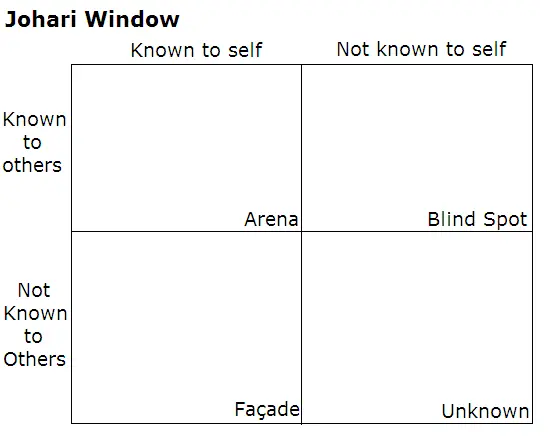I have seen a lot of writing advice articles throughout the years. Some great, some terrible, but I can’t recall seeing anything on the unsexy topic of how to take edits. A lot of writers complain that editors/publishers want to ‘change’ (fix) their story, so fuck publishing, they’ll just put it out themselves. I’ve seen that a lot from very talented people and it got me thinking—do aspiring writers not know how editing works?
This seems ridiculous but it's sadly true. A lot of writers believe editing to be proofreading and maybe fixing up weak a line here and there. This is not editing! This is someone doing the final copyedit after review ARCs have been sent out. I think there's been some weird romanticism of a writer handing in the perfect draft and the publisher doing a minor proofread for typos and BOOM—the next great book is published.
This is total bullshit. This mentality really hurts aspiring writers from growing and working on their craft. This behavior makes me think of the psychological theory titled the Johari Window.

If you don’t want to click on the Wikipedia link, the theory is basically that we have four panels of awareness and perception. Through two of those panels we can see how others see us, but there is one panel through which we can never see, and another panel that is facade, a lie we tell ourselves. An editor’s job is to fix up those facades and blind spots in your books. Below are the different types of editors and the job they do.
Content Editor
One huge value an editor can provide is content editing. This is usually what writers throw tantrums on social media about, a content editor trying to make their story flow. A good content editor respects the writer, but their main goal is to serve the reader. Their edits could be minor: add the protagonist's desire in the first ten pages, add page breaks and make minor cuts to help with story pacing, or they could request major changes to the POV, the addition of a new ending, a rewrite of the beginning, the middle, or the end or the entire book.
There will be notes. Lots of notes about causality of characters, on breaking tone/losing the voice, on scenes you should cut that don’t serve the story, and what to add or take out in the next draft. All of these notes and suggestions are directions to make your book better—you don’t have to follow them, but they will definitely help you reach the finish line of the next draft. Editors are not sadists. We are not trying to challenge your brilliance. We have skin in the game too. Our job is to put out the best story so our publisher and/or readers will buy more books we work on. The writer’s job is to decide which of the editors suggestions they will follow—we will get to that later.
Line Editor
Sometimes you will have a content editor and another editor to do line edits. Many agents act like content editors and minor line editors. Some editors will do both. The line editor’s main goal is to make sentences the best they can be. There are many ways that can be achieved: smoothing out sentences, fixing the dialogue so it flows better or is more character appropriate, seeking more precise and descriptive words, eliminating weak sentences and/or passive voice. It’s been my experience that genre writers are cool with this type of editing, but hate content editing, and literary writers get frustrated with heavy line editing.
Copy Editor
Copy editors have the simple but very challenging and tedious job of fixing typos, inconsistences, spelling, grammar, and syntax. To use my beloved football metaphors, copy editors are the offensive line, because nobody knows who they are unless a ‘bad sack’ happens (shout out to Joshua Chaplinsky for copy editing this piece.) They are the unsung heroes of editing, but sadly, too many inexperienced writers think they provide the only real form of editing. To beat my football metaphor to death, the content editors are the quarterbacks and wide receivers, the line editor is the defense, and the copy editor keeps you from falling on your ass.
Taking Edits & Picking Battles
Okay, now you know what each type of editor does and you're willing to take suggestions to make your book better. But what suggestions do you take? If you don’t take any edits, you are just wasting your editor and/or publisher’s time. Conversely, if you take every single edit, are you still going to feel good about the book? This is where things get difficult, and there is no easy answer I can give you. The best approach is to stay passionate about your book but act with pragmatism on how to make it better. Remember this book is not just about you, it's about all the readers, and you and the editor have to find a common ground on how to serve those readers.
The best way to take edits with passion and pragmatism is to look objectively at the suggestions, ask yourself if you would still feel good about your book if you made the changes. Be smart in what you fight for. Sometimes you really do need some heavy editing for your book, and sometimes you've got to fight for your vision. It’s a combination of trusting your gut, but also viewing the work from your editor’s and future readers' eyes.
Co-Writers
David Osborne recently published a piece on this site about the importance of having a co-writer. I enjoyed the piece a lot and it made me think this would be a good way for writers to look at their editors. It really is a collaborative process between two or sometimes even three or four people. Having experienced being edited and editing others, I've seen some writers fight every single aspect of their edits. This is a result of fear, lack of craft, and ego. Seeing your editor as a co-writer is the best way to engage in the process. Embrace collaboration and find the common ground where you and your editor can serve your muse while you both still serve the reader.
0060545690
B01DGPSNWW

About the author
Christoph Paul is the Managing Editor and owner of CLASH Books, who have published over 60 books and have been covered by NPR, Poets & Writers, Rolling Stone, Believer Magazine, Oprah Magazine, The Observer, Fangoria, and Publisher's Weekly. The press has had books translated into Spanish, French, and Italian. He has been editing books in almost every genre for over a decade. As an author, he won a humor award and had viral cult success under a pen name. He is the lead singer and bass player of the rock band The Dionysus Effect, who have received positive reviews in Loudwire, EARMILK, and Red Rock Magazine. He sometimes writes songs about the books he publishes because even artists are inspired by their day jobs. Follow him on Twitter @christophpaul_ @clashbooks @dionysuseffect.








